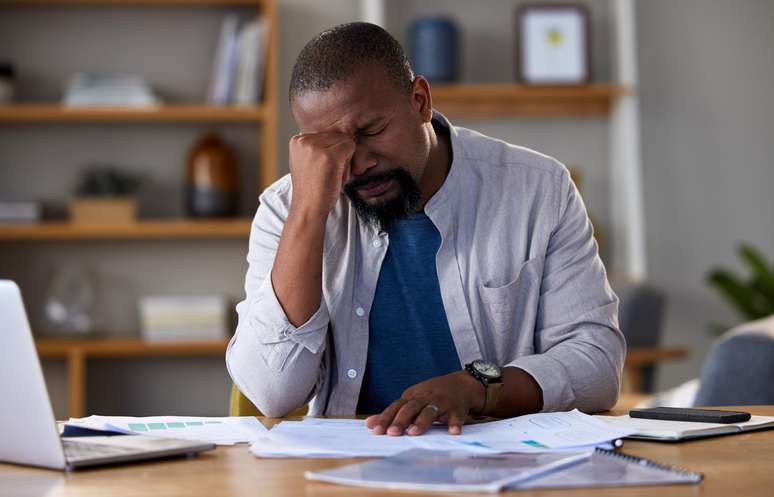Find out what the main physical and psychological signs of an anxiety crisis are and see what to do when it occurs
html[data-range=”xlarge”] figure image img.img-f8a89b23f54488a88eb151a6ff7ffdea3hgs12ki { width: 774px; height: 497px; }HTML[data-range=”large”] figure image img.img-f8a89b23f54488a88eb151a6ff7ffdea3hgs12ki { width: 548px; height: 352px; }HTML[data-range=”small”] figure image img.img-f8a89b23f54488a88eb151a6ff7ffdea3hgs12ki, html[data-range=”medium”] figure image img.img-f8a89b23f54488a88eb151a6ff7ffdea3hgs12ki { width: 564px; height: 362px; }
The anxiety crisis can already be considered one of the greatest evils of today. Ignorance of symptoms, especially if experienced for the first time, causes even more fear and restlessness because one does not know what is happening to the body and mind. Hence the need to expand knowledge on the subject, in order to create an increasingly favorable environment for satisfying the real needs of these people.
What is Anxiety Crisis?
Anxiety is an instinctive feeling that warns us of danger, leading to a state of excessive worry and discomfort. To some extent, it is considered essential for us to reevaluate situations that threaten our existence.
Anxiety becomes pathological when we paralyze our lives in the face of fear, in these cases the intensity and recurrence is considered extremely demanding, interfering with our routines, relationships and other areas of our lives.
An anxiety crisis is when the bucket is full, we can’t hold back the emotional impacts and we reach our mental limit. In a moment of crisis everything becomes intense and messy, making us see tragic scenarios even if they don’t connect with reality. An anxiety crisis can be felt in countless ways depending on each person’s experience.
What are the symptoms
At the time of a crisis, certain symptoms end up being highlighted, namely:
- Palpitations – rapid heart rate;
- tremors;
- Escape from reality or a feeling of being outside of yourself;
- Racing or obsessive thoughts;
- Fear of losing control;
- Repetitive gestures;
- Dizziness;
- Shortness of breath;
- Irritability – nervousness;
- Sensation of heat – sweat
What to do to calm an anxiety attack
Simple attitudes you can have in times of crisis:
Connect with reality: Look for everything that is palpable and visible to the eye, objects and textures can be excellent allies, name, touch and note what you see around you, distracting attention from accelerated thinking.
Regulate your breathing: At the moment of the crisis, it is automatic to change our breathing, be careful to recover the rhythm, using counts or the simple “inhale and breathe” mentally repeating until the acceleration is normalized or minimized.
Change focus: Look for alternatives to deal with your thoughts by focusing excessively on what is holding you hostage, do it by talking to other people about other topics, listening to music or doing activities that make you feel good.
Recognize Your Anxiety: Make it clear that the disturbing moment is an anxiety attack;
Relax your body: Look for comfortable positions, avoid tensing your muscles or maintaining a stiffer posture.
how to deal with anxiety
Anxiety disorder treatment is necessary when we realize that such a feeling is getting out of our control. For this, we can look for facilitating means that help us in the face of a crisis, thus achieving a decrease in symptoms.
Psychotherapy: It is essential for us to rationalize the thoughts that lead us to this advanced stage of anxiety, in this way we can more easily identify when the crisis is approaching, as well as restructure the thought patterns that cause psychic suffering;
Psychiatric follow-up: When we can’t contain the suffering and the crises become a big damage to our mind, we have to resort to pharmacological treatment to regulate and alleviate the racing thoughts.
Self care practices: Personal care is a way to approach ourselves with habits that are favorable to our mind and body, with this we also increase aspects such as self-knowledge, self-esteem and self-confidence, which are means of personal connection .
Phisical exercises: Incorporating physical activities into your routine can help keep you moving and boost hormones needed for mental balance while continuously reducing anxiety spikes.
Try to resolve your conflicts: Observe thoughts that end up encouraging increased anxiety, question the veracity of these thoughts, trying to resolve what needs your attention
Anxiety has no cure, some situations can stimulate symptoms, but even if we don’t get a cure, we can protect ourselves so that it doesn’t take a greater proportion.
How long does an anxiety attack last?
An anxiety crisis can last an average of 50 minutes, and can be prolonged in the most severe cases. What we must emphasize, in addition to the duration, is the recurrence of this state. At the time of a crisis, we must keep in mind that we can facilitate or hinder this process as we deal with the situation.
Source: psychologist Fernanda Freitas, specialist in relationships and schema therapy; PhD candidate in cognitive behavioral therapy.
Source: Terra
Ben Stock is a lifestyle journalist and author at Gossipify. He writes about topics such as health, wellness, travel, food and home decor. He provides practical advice and inspiration to improve well-being, keeps readers up to date with latest lifestyle news and trends, known for his engaging writing style, in-depth analysis and unique perspectives.








